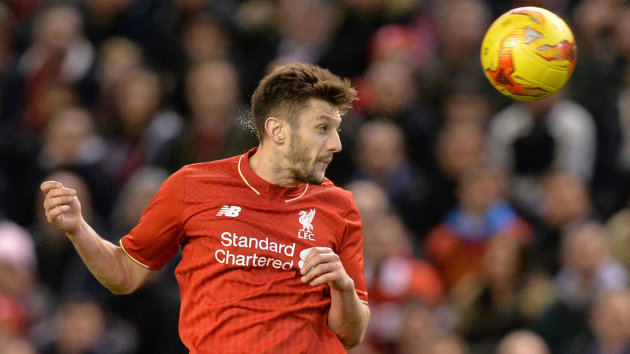
As Gareth Bale posed in a Real Madrid shirt for the first time in September 2013, Tottenham Hotspur
had already moved on. Aware they could earn a considerable fee for
Bale, they also knew it would take a focused effort to replace the
Welshman.
Attempting to do so with a bevy of signings, they spent just over £100million in the weeks prior to his departure on: Christian Eriksen, Nacer Chadli, Vlad Chiriches, Erik Lamela, Roberto Soldado, Paulinho, and Etienne Capoue.Actually leaving the summer window with a £4.2million profit, (largely down to Bale’s departure) the new arrivals were seen as the dawn of a new era for the club. Working under the guidance of Portuguese coach Andre Vilas-Boas, he would depart White Hart Lane in mid-December by ‘mutual consent’.
For the most part, the new arrivals were not fairing much better. Eriksen would end the season having impressed, but for the likes of Soldado there was little to cheer. The most expensive of the seven, the Spaniard struggled with the pace of the Premier League, and found the net just 6 times in 22 Premier League games.
By the half way point of the season, and with Vilas-Boas gone, many were scrutinising Daniel Levy’s recruitment drive. Liverpool boss Brendan Rodgers offered his thoughts in public, stating, ”Look at Tottenham. If you spend more than £100 million, you expect to be challenging for the league.”
A statement that would come back to haunt Rodgers, he would go on a similar spending spree in the wake of Luis Suarez’s departure to Barcelona in 2014. In fact, Rodgers would spend £12million more than Spurs, with: Rickie Lambert, Adam Lallana, Emre Can, Javier Manquillo, Lazar Markovic, Dejan Lovren, Divock Origi, Alberto Moreno and Mario Balotelli all arriving at Melwood.
Dropping from 2nd to 6th by the end of the 2014-2015 season, the situation saw Liverpool’s infamous ‘transfer committee’ take centre stage. Causing a public divide between the club’s hierarchy, and Rodgers, many felt the then Liverpool boss was unwilling to take responsibility for those deemed expensive errors of judgement.
However, with both teams currently performing well, it is interesting to note the influence of their respective coaches - Mauricio Pochettino
and Jurgen Klopp. Under Pochettino, Lamela now looks like an exciting
game-changer, while Chadli has served as a useful impact sub.
Meanwhile,
Lallana and Lovren have been important parts of Klopp’s side, with the
latter playing a vital role in sending the club to the semi-finals of
the Europa League. Such an improvement in fortune will surprise many,
but is likely down to two different, but important, factors.Manchester City’s Global Lead for Talent Management, Gavin Fleig, told the BBC that it can take roughly a year for a foreign player to settle in properly. Transplanted into a new, and at times alien culture, it cannot be easy, “We had an African player who came to join us a few years ago who had never been out of Africa before, except for a couple of days,“ Aston Villa’s player liaison officer, Lorna McClelland, told the BBC. “When he came to Birmingham airport, he sat in my car with his hands over his ears because he couldn’t bear all the noise from the traffic and the voices. He wasn’t used to them.”
Requiring
a degree of patience, it is something that is often in short supply in
today’s game, especially for those challenging at the top end of the
Premier League. Using Leicester’s Riyad Mahrez
as an example, the Algerian was solid if not spectacular last season -
scoring 4 times in 30 games. This year, he has broken double figures for
goals and assists, while also being crowned PFA Player of the Year.
In
the case of those moving domestically, such as Lallana - the change can
be just as jarring. Adapting to a new situation does not only apply to
the culture off the field, but also on it. For some, a change in style
of play, and what you are asked to do, can be difficult. After moving to
Liverpool the 27-year-old was asked to perform a different role in
midfield. Now working with Klopp, the German has said he watched
numerous DVDs of Lallana’s time at Southampton to better understand how he plays.
Such
attention to tactical detail is important when signing new players. The
transition from Rodgers to Klopp has seen a significant change in
tactical style by Liverpool, with Roberto Firmino
arguably one of the biggest beneficiaries, “I am very confident with
Jurgen Klopp,” Firmino said. “He is helping me on the pitch to score
more goals and so my form is improving match after match. I am nearer
the goal now so I have more opportunities. I feel I have adapted to life
in Liverpool and I am happy here. My wife is pregnant again and I feel
settled.”
Although the
improvement under Pochettino has taken slightly longer, its impact
cannot be contested. Typified by the form of Lamela, Pochettino has
identified how best to use the players already at his disposal. Those
same principals also apply to Spurs’ title rivals Leicester, with
Claudio Ranieri’s shrewdest move being to identify a tactic that
maximises his group’s strengths.
With
both Liverpool and Tottenham now making the most of the talent at their
disposal, it furthers the notion that the players signed during their
respective summer sprees were not unanimously bad players, rather they
were a bad fit for the management of the time.
A
theory strengthened by the fact that Spurs are currently challenging
for the Premier League title, and Liverpool are edging towards a
European Cup final, it may see more clubs question whether the player
they intend to sign is the right fit for their current manager, saving
both parties needless stress in the process.


Comments